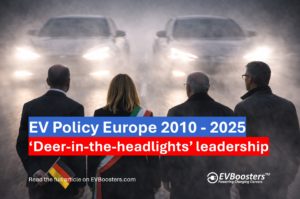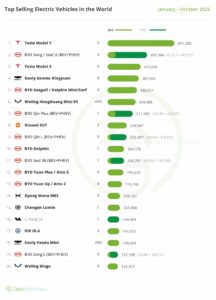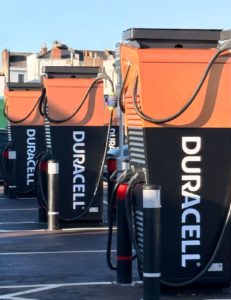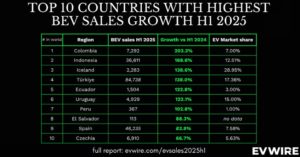The research suggests that automakers offering only shorter-range BEVs might face challenges in keeping up with the zero-emission vehicle (ZEV) transition. According to Stockkamp et al. (2021), consumers are less likely to switch to EVs if they have limited ranges, highlighting the importance of offering higher-range vehicles to drive faster ZEV uptake and make automakers more competitive.
To further emphasize the significance of driving range, the California Air Resources Board (CARB) has introduced minimum range requirements for BEVs, allowing them to count towards the ZEV targets in the Advanced Clean Cars II regulation (California Air Resources Board, 2022).
While consumers generally prefer longer driving ranges, the report acknowledges that this comes with financial and environmental costs. Larger batteries are necessary to provide extended ranges, resulting in increased vehicle weight. Heavier vehicles require more energy for propulsion, leading to higher electricity consumption, increased recharging costs, and greater greenhouse gas (GHG) emissions from upstream electricity production.
Manufacturers are also exposed to price swings in critical minerals such as lithium, which are required to build larger batteries. Additionally, as battery production and mining contribute significantly to overall GHG emissions in BEV manufacturing, longer-range vehicles increase emissions as long as fossil fuels are still utilized in upstream processes.
Despite these considerations, the report argues that driving range is a crucial metric for attracting a wide consumer base. Moreover, as internal combustion engine vehicles (ICEVs) still dominate the market, larger-battery BEVs continue to offer environmental benefits.
The study analyzed driving range data from 20 manufacturers and found that the average driving range varied significantly, ranging from 196 km to 503 km. Tesla emerged as the leader with an average driving range of 503 km, followed closely by Ford at 488 km, primarily driven by the success of its Mustang Mach-E model, boasting an average range of 505 km.
Other top-performing manufacturers, including VW, GM, BMW, Hyundai-Kia, BYD, Mercedes-Benz, Toyota, and Geely, offered substantial average driving ranges ranging from 400 km to 450 km, thanks to their popular models like the IONIQ series from Hyundai-Kia, the ID.5 from VW, and the EQA from Mercedes-Benz.
However, some manufacturers like Honda, Renault, Great Wall, Nissan, and Stellantis had lower average driving ranges, between 283 km and 355 km. Brands such as Tata, Chang’an, Mazda, and SAIC lagged behind in this metric, with SAIC recording the lowest average driving range of 196 km. These companies cater to urban dwellers and commuters with less expensive BEVs designed to meet daily commuting needs.
While the average driving range metric has limitations, the report acknowledges that increased costs and larger battery packs may not be attractive to consumers beyond a certain point. Some manufacturers, such as SAIC, strategically focus on shorter-range BEVs to provide affordable options for daily commuters. However, for overall market growth and wider consumer adoption, longer-range vehicles are necessary to address diverse consumer needs and facilitate a complete transition to ZEVs.
Source: The global automaker rating 2022 | The ICCT







